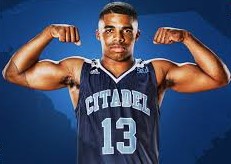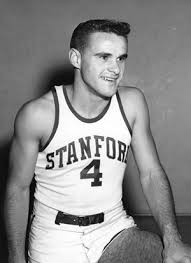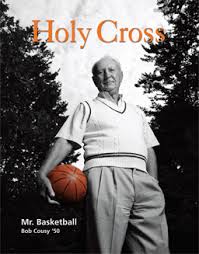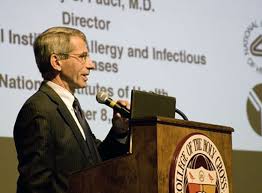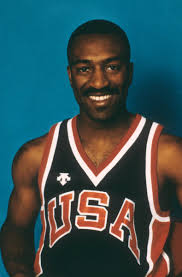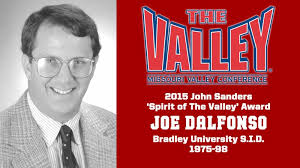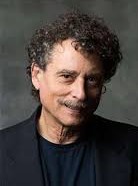We have been missing college basketball since March and will not be seeing any NBA basketball until July 31st at the very earliest. The good news is that we can celebrate America’s birthday on the 4th of July with some on-court fireworks courtesy of The Basketball Tournament. The TBT returns next month with a 24-team single-elimination bracket that will be played over the course of 10 days in Columbus, OH with a winner-take-all prize of $1 million. We commence our preview coverage with Lew Stallworth, who played at UTEP/UTRGV before having an amazing grad transfer season at the Citadel. He will be playing for Power of the Paw along with several former Clemson stars including Donte Grantham/Terrell McIntyre/Elijah Thomas. HoopsHD’s Jon Teitel got to chat with Lew about being a great PG and playing for $1 million next month.
You were born/raised in California: what made you choose UTEP to start your college career? Being from California, all I knew was California. I was attending high school outside of LA and wanted to see something different. I wanted to experience a different state with new ways of living/new traditions. UTEP has a rich history for basketball and sports in general. When I was recruited Tim Floyd was the coach and he had NBA ties so I wanted to learn from the best.
How did you like playing at UTRGV, and what made you choose The Citadel for your final year of college basketball? UTRGV was very different than UTEP because it was in south Texas right by Mexico so the area was rich in Mexican/Latino culture. I really enjoyed learning new traditions and loved the Valley: my time is Edinburg was great. I learned how to play a different style of basketball under Coach Lew Hill, who had just come off a Final 4 run as an assistant with Oklahoma in 2016. The Citadel attracted me because I was looking for a place where I could really thrive and become the main playmaker. Their up-tempo style really fit my abilities and they allowed me to be myself.
In February of 2019 you scored a career-high 37 PTS in a loss at Western Carolina (which is tied for the 10th best scoring performance in Bulldog history): was it just 1 of those scenarios where every shot you put up seemed to go in because you were “in the zone”? That game was really odd in a few different ways. Our 2 best shooters were hurt and our big man Zane Najdawi fouled out so nobody was scoring at all during that game. I just got into a different mode to try to keep my team in the game: I did not want to lose without putting up a fight.
You had the highest scoring increase of any grad transfer in the nation as you improved from 5.9 PPG through your 1st 3 seasons to 20.2 PPG in Charleston: how were you able to become such an incredible scorer in just 1 year? I always had the ability to score but did not have the opportunity to showcase that ability. The summer going into my senior year I got into the gym a lot with my trainer Daytwan Mayfield and really changed my game to become a complete scorer. I wanted to play as if I was in high school again. Once I got onto campus I was able to spend countless hours in the gym with my grad assistant Brad Mason who helped take my game to the next level.
You also ranked top-20 in the nation with 6.2 APG: how do you balance your scoring with your passing? Coach Duggar Baucom and the entire staff did a tremendous job of surrounding me with guys who were high-level shooters. My job was just to make the right play whether it was shooting the ball myself or passing to someone else. The game was easy because there was so much spacing on the floor and it made basketball fun. If there was a hot hand then I would feed him until he ran out, or if I was going then I would keep it going.
Last year you played pro basketball in the Ukraine: how did it go, and what is the biggest difference between basketball in the US vs. basketball overseas? My first year playing overseas was definitely a struggle. It was hard being so far away from home but it taught me a lot about my mental strength. I learned how to be mentally strong and keep my emotions in check. It was a great experience: I played high-level competition and got to play a lot of minutes. I learned about another culture on another continent and am ready for the next season.
The NCAA tourney was canceled last March: what was your reaction when you heard about it, and what impact has the coronavirus had on you either on or off the court since then? I felt really bad for the seniors who could not compete for a championship: that was the worst part of all of this. Personally, it helped me reconnect with my family as I got the chance to spend a lot of time with them. It has also rekindled the love of basketball for me because I have missed it so much. COVID also helped me find my current girlfriend so I am pretty happy about that!
Next month you will be playing for Power of the Paw in the TBT: why did you decide to participate, and how is the team looking at the moment? I got the chance to win a game in the TBT last year so I am really excited to get back to it. I want to play against the best of the best while showcasing my talent/ability. The team looks really good and I am very excited to get to it next week.
What will your share of the $1 million prize be if your team wins it all, and what will you do with the money? My winning share is $100,000. If I win the money I will invest most of it, save part of it, and spend a little of it.
What is it like to be an African-American man in 2020, and are there any thoughts you would like to share about George Floyd/protests/police/etc.? 2020 has been a really wild ride thus far. Being Black right now is very controversial. I fear driving past police officers and fear getting caught running in the wrong neighborhood: I just do not feel safe. I want my kids to be able to feel free but I feel like a prisoner because we are looked at as less than White people in this country. I support the protest movement and have protested myself because I want my people to have equal rights. Injustice and inequality must stop. God loves all humans and created all humans so how can we say that we love God and are God-fearing but do not believe that we are all equal? It makes no sense. I stand with my brothers/sisters as we fight the good fight, the necessary fight.

